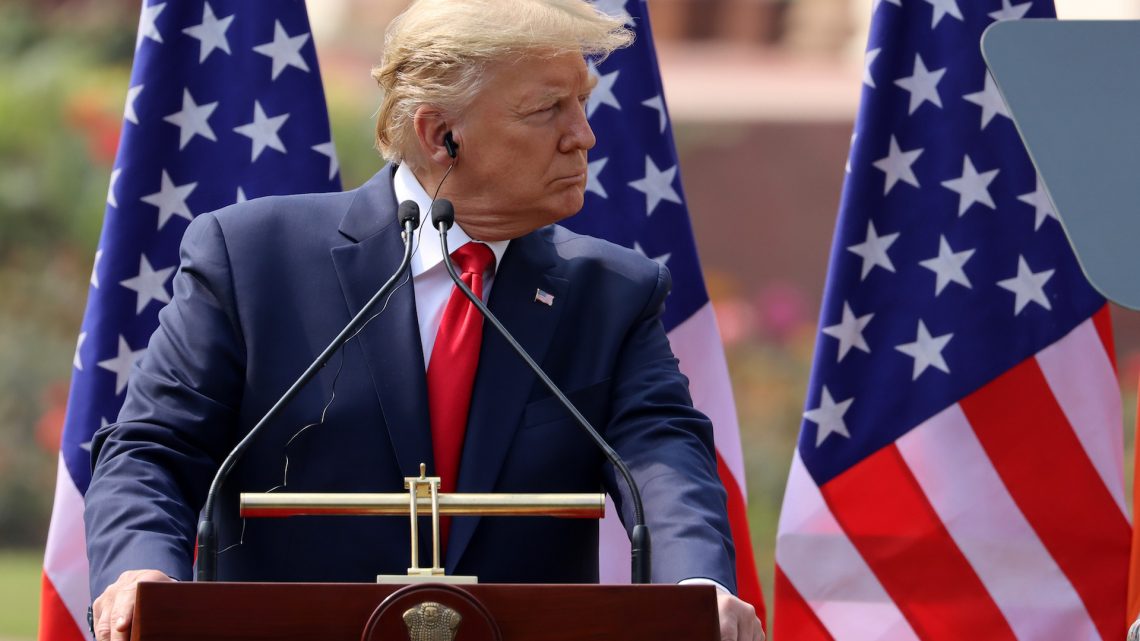
Trump’s Going After the New York Times With the Lawyer Who Destroyed Gawker Media
February 26, 2020President Donald Trump’s reelection campaign is taking another shot at the New York Times — with a libel suit filed by the same lawyer who sued Gawker Media into oblivion.
The campaign is accusing the newspaper of knowingly publishing false information in a May 2019 op-ed arguing that Trump and Russia effectively colluded before the 2016 election.
The column said Trump had an “overarching deal” with the Kremlin to ease sanctions in return for Russian operatives torpedoing Hillary Clinton’s campaign. The Times opinion section ran the piece before special counsel Robert Mueller found no criminal conspiracy despite shady meetings between the two parties.
“The statements were and are 100 percent false and defamatory,” Jenna Ellis, senior legal adviser to the Trump campaign, said in a statement. “The complaint alleges The Times was aware of the falsity at the time it published them, but did so for the intentional purpose of hurting the campaign, while misleading its own readers in the process.”
The campaign shared a draft of the complaint signed by the notorious media attorney Charles Harder, who sued the Gawker Media empire into bankruptcy on behalf of Hulk Hogan, represented first lady Melania Trump against The Daily Mail, and has since taken aim at CNN. Seeking damages “in the millions of dollars," he argues that the Times column’s subtle points should be taken literally.
Writer Max Frankel, former executive editor of the Times, argued that Trump and the Kremlin shared an understanding rather than “detailed electoral collusion.” Various figures from Trumpworld met with Russian operatives during the campaign. And former National Security Adviser Michael Flynn talked with Russian Ambassador Sergey Kislyak before Election Day about easing economic sanctions.
Trump himself even asked the Kremlin to hack Clinton’s emails during a July 2016 news conference.
Frankel’s op-ed had been lost in the mountain of Mueller content until today. Harder argues in his complaint that the piece alluded to Team Trump’s communications maliciously and inaccurately twisted them into “an overarching deal” and “quid pro quo” between Trump and the Kremlin. He goes on to assert that the paper published the piece before Mueller concluded his investigation because he “was likely to exonerate the Campaign.”
“There is extensive evidence that The Times is extremely biased against the Campaign, and against Republicans in general,” the complaint argues, citing its editorial board’s endorsements of Democratic presidential candidates.
Harder contends that the piece also contradicted the Times’ newsroom, which operates separately from the opinion section, showing reckless disregard for the truth.
Libel of public figures like Trump is notoriously difficult to prove in court. While the president has a long history of threatening media outlets with such lawsuits, a 2016 Reuters analysis found he hadn’t followed through with it in three decades.
But the complaint nevertheless ramps up his rhetorical assault on the press in which the Times — Trump’s hometown paper — is a frequent target. Ellis, the Trump campaign legal adviser, said on Twitter Wednesday that she’ll appear on Tucker Carlson’s Fox News show Wednesday night to take more swings at the media piñata.
"The Trump Campaign has turned to the courts to try to punish an opinion writer for having an opinion they find unacceptable,” a Times spokesperson said in a statement. “Fortunately, the law protects the right of Americans to express their judgments and conclusions, especially about events of public importance. We look forward to vindicating that right in this case."
Additional reporting by Greg Walters
Cover: U.S. President Donald Trump pauses during a news conference alongside Narendra Modi, India's prime minister, not pictured, at Hyderabad House in New Delhi, India, on Tuesday, Feb. 25, 2020. (Photo: T. Narayan/Bloomberg via Getty Images)


